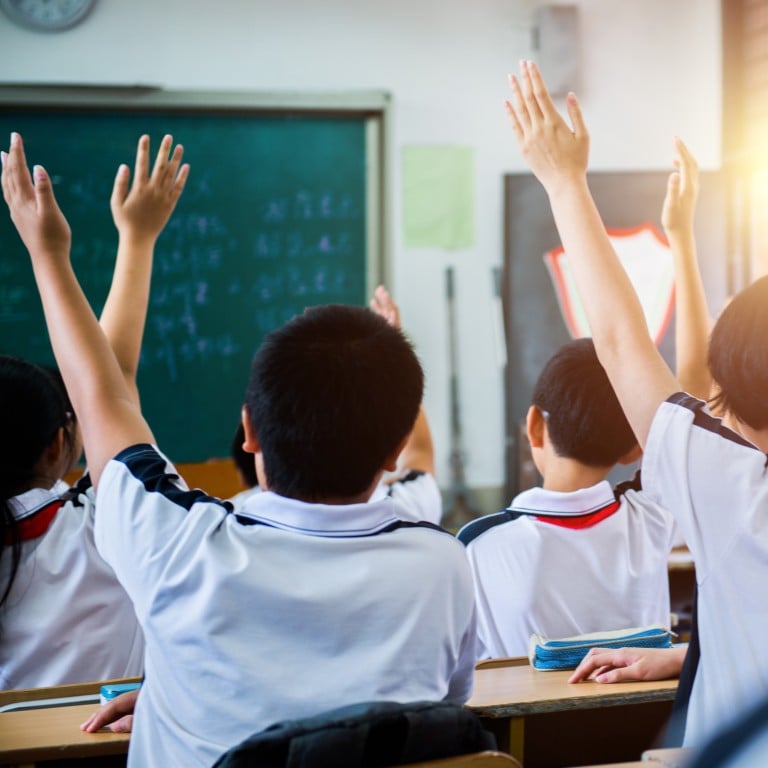
Hong Kong public spending watchdog urges academy for gifted students to tackle lack of school nominations for membership
- Watchdog recently reviewed work carried out by Hong Kong Academy for Gifted Education
- Audit Commission says there has been a ‘lack of enthusiasm’ among schools for applying for academy membership for pupils
Hong Kong’s public spending watchdog has urged a government-subsidised academy for gifted students to tackle a lack of school nominations for membership and improve the completion rate of courses.
The Audit Commission recently reviewed the work carried out by the Hong Kong Academy for Gifted Education (HKAGE), a non-governmental organisation that provides free programmes and services to students aged 10 to 18, along with the Education Bureau.
In a report released on Wednesday, the watchdog found that between the 2018-19 and 2022-23 school years, there was a “lack of enthusiasm” for applying for membership of the institution.
‘Hong Kong primary schools should overhaul exam formats to reduce student stress’
It said that during the five-year period, on average, 51 per cent of about 1,000 primary and secondary schools or their principals did not nominate students for membership. The watchdog asked the academy to collaborate with the bureau to address the issue.
“In view of the lack of enthusiasm of some schools in nominating gifted students, [the academy should] … for example, [strengthen] publicity among the schools and [encourage] them to identify gifted students for nomination,” the report said.
“[It should take] further measures to promote channels for identification of gifted students other than school nomination.”
The academy, founded in 2008 as a private company, is a non-profit organisation subsidised by the bureau.
It works closely with the bureau in providing off-school education services for gifted primary and secondary pupils.
19 Hong Kong educational institutions signal interest in new academic town
The watchdog said in the 2022-23 school year, the academy received government subsidies of HK$50.6 million. It reported a total income of HK$51.4 million and incurred expenses of HK$52.1 million in the same period.
Gifted students aged between 10 and 18 studying in Hong Kong schools are eligible for membership of the academy. It had around 8,000 members as of the end of 2023.
There are five ways gifted students are identified, either through nominations by schools, parents or principals, by invitation from the academy, and completion of a web-based learning course.
Nominated students from some of these channels will be assessed via an online screening programme and then a screening of their profiles, while some only need to go through the latter process.
From 2018-19 to 2022-23, the number of membership applications received ranged from 9,590 to 12,538 annually, with between 1,520 and 2,145 admitted each year.
Most applications were submitted through school nomination, ranging from 88 per cent to 92 per cent every year. But percentages for other channels were “on the low side”, ranging from 1 per cent to 10 per cent per method each year.
In a reply to the watchdog, the academy in February said some schools had reasons such as they thought there were very few gifted students and they were concerned about staffing arrangements for teachers who had to follow up on nominations.
It said taking into account the three nomination sources, 37 per cent of primary schools and 46 per cent of secondary schools did not have students nominated.
“Due to the rigorous screening process, when their nominated students were not successful in becoming HKAGE members, some schools might reassess their suitability for school nomination taking into account the expected standards and decide not to nominate their students in the following year,” the report said.
The academy said it would continue its publicity initiatives by holding more school visits and conducting briefing sessions, and exploring more channels to recruit gifted students.
The watchdog also found that the completion rates of some programmes for gifted students were low from 2020-21 to 2022-23. Twenty-six of 1,246 in-person courses and 62 of 108 online programmes had a completion rate below 50 per cent.
It also found that unlike in the past, the academy did not set any targets for completion rates in its business plan for 2021-22 to 2023-24, and there was no evidence showing the justifications for such behaviour.
It suggested the academy set targets, as well as monitor completion rates and adopt measures to boost them.

